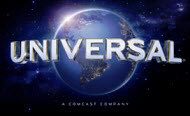Monkey Man
 for strong bloody violence throughout, language throughout, sexual content/nudity and drug use.
for strong bloody violence throughout, language throughout, sexual content/nudity and drug use.
Reviewed by: Michael Karounos
CONTRIBUTOR
| Moral Rating: | Extremely Offensive |
| Moviemaking Quality: |
|
| Primary Audience: | Adults |
| Genre: | Crime Action Thriller |
| Length: | 1 hr. 53 min. |
| Year of Release: | 2024 |
| USA Release: |
April 5, 2024 (wide release) |







About murder
About death
Corrupt leaders systemically victimize the poor and powerless
Films that include sociopolitical commentary

POVERTY—What does the Bible say about the poor? Answer
About the POOR in the Bible
Greed
Why does God allow innocent people to suffer?

What about the issue of suffering? Doesn’t this prove that there is no God and that we are on our own? Answer

Why is the world the way it is? If God is all-knowing, all-powerful, and loving, would He really create a world like this? (filled with oppression, suffering, death and cruelty) Answer

Human rage
Anger in the Bible
Revenge
What is the FALL OF MAN? and its effects? Answer
Rampage of strong bloody violence


BRUTAL FILM VIOLENCE—How does viewing violence in movies affect families? Answer
Heavy foul language

Hindu false gods, including Hanuman
About idolatry and false gods in the Bible
What is Monism and Pantheistic Monism? Who believes in Monism? Is it biblical? Answer

| Featuring |
Dev Patel … The Kid Sharlto Copley … Tiger Sobhita Dhulipala … Sita Adithi Kalkunte … Neela Sikandar Kher … Rana Pitobash … Alphonso See all » |
| Director |
Dev Patel |
| Producer |
Jordan Peele Monkeypaw Productions See all » |
| Distributor |
Not since I reviewed Stephen Chow’s “Kung Fu Hustle” (2005) for Christian Spotlight have I seen a movie with a religious subtext that has excited me as much on first viewing as does Dev Patel’s “Monkey Man.” The narrative arc of the protagonist’s spiritual education as a child, his subsequent suffering, and his persecution as an adult, eventually lead to his apotheosis as an archetypal Hanuman, an Indian deity who is, in fact, a monkey. In this respect, Monkey Man’s anagogical journey is a redemptive analogy for a Christ-like parable which has the elements of suffering, sacrifice, and resurrection.
In brief, the movie is set in a Mumbai-like city and shows people living in crushing poverty in the shadow of opulent high rises infested with a decadent nightlife. The movie critiques corruption in the three social domains of politics, religion, and civics. A charismatic religious leader, a political puppet, and a vicious police chief combine to murder and rob poor people of their land, leading to the horrible death of Monkey Man’s mother and the beginning of his journey to sanctification through suffering. While many reviewers criticized the social commentary as being either superfluous or heavy-handed, it is neither as I will explain below.
Conservative Christian audiences
If Patel were not so influenced by the Wick franchise, he could have dialed back the sex and overtly graphic violence and made a Hindu movie more like “Kung Fu Hustle,” whose religious subtext was Buddhist. Unfortunately, this movie is an absolute non-starter for Christians who make a serious effort to maintain a pure walk with God. While the most egregious sequences from a Christian perspective are the fornication scenes in a house of prostitution, they are only the most objectionable element among many.
There are numerous other instances of sordid sexualization as well as a lot of stomach-turning violence featuring graphic finger-chopping and head-crushing sequences. The grisliness of the latter are amplified by being framed in close-ups with squishy sound effects in which little is left to the imagination. In addition to those sickening depictions, there are also many uses of the F-word which seem almost quaintly offensive by comparison.
Those elements aside, there is one thing that offended me more than either the sex or the violence and that was the mockery of Christians. The emcee at one point gratuitously unites a Hindu and Muslim audience by inciting them to boo Christians. Later a character says disparagingly, “It is a Christian thing.”
Why would a movie that shows Hindus and Muslims “co-existing,” condemns corruption, and valorizes transexuals, go out of its way to insult Christians? Does the writer of those lines think Muslim societies would be more kind to transsexuals than American society which actively promotes transitioning and mutilation in our elementary schools? In the article “Diversity and Final Draft” one of the film’s writers, Paul Angunawela, is described as having a “preference for stories about people who represent the world over homogeneous, white-washed versions of it.” Apparently, Angunawela’s “diversity inclusion” draws the line at Christianity.
To summarize, there are Christians who can watch such content and compartmentalize it aesthetically (as we reviewers try to do), while others are affected spiritually. If you are among the latter, there is simply no way to rationalize seeing a movie with degrading sex scenes and even more degrading pornographic violence. Consider the biblical principle the Apostle James, living in pagan times, articulates:
“So whoever knows the right thing to do and fails to do it, for him it is sin” —James 4:17
If you are affected spiritually by such content, the impressions will be life-long and scarring. And if you see it knowing that, you are intentionally sinning. Don’t do it. The benefits are not worth the trade-off. Watch an old Jackie Chan (or Charlie Chaplin) movie instead and skip the sex and violence.
Christian action film audiences
With that blinking neon caveat established, there are two segments of a Christian audience who will enjoy parts of “Monkey Man” while cringing at the scenes I described. Action fans who can tolerate the violence of the “John Wick” films will probably enjoy this one.
Director Chad Stahelski’s Wick franchise established a new standard for serial fights scenes whose breath-taking violence were distinguished by a stylized choreography that is aesthetically pleasing. Even as one is being psychologically jarred by the bloody results of balletic mayhem, one can still appreciate the fluidity and creativity of the martial arts.
Similarly in “Monkey Man,” there are three action sequences that I believe are superior to the Wick films for the simple reason that Patel, as a physical actor, is superior to Keanu Reeves. Reeves was 50 when he made the first Wick film. His age showed in the first one in 2014 and it showed more in the fourth one in 2023. His fight choreography is marked by a kind of plodding grace, like someone practicing their first kata or an inexperienced actor finding their marks on a stage.
By contrast, Patel is only 33 and is naturally graceful and powerful, as in the scene where he punches a heavy bag. His sequences are marked by a fluidity, inventiveness, and choreographic timing that are comparable to Jackie Chan’s fight scenes and similarly incorporate the objects, furniture, and structure of the surroundings. Consequently, his creativity as both actor and director, his physical timing, and his cinematic pacing combine to create a next level performance that is fascinating to watch as every proximate object is weaponized by the tumult of tornadic flow through the scene.
Like “Kung Fu Hustle,” Patel’s film pays homage to multiple film genres. John Wick is mentioned twice, King Kong is mentioned, Patel’s character scampers like Spider-Man, wreaks vengeance at night like Batman, recovers from traumatic injury like Wolverine (albeit slowly), and is called the “Kid,” evoking a Western movie archetype. In this regard, his character is like Clint Eastwood’s anti-hero in “Pale Rider” who in his resurrected incarnation purges society of the corrupt citizens who have terrorized innocent people.
Christian fans of myth
Patel uses all these tropes to allegorize the Kid’s rebirth as an archetypal Hanuman. In the beginning we are shown how the Kid was raised by his mother on comic books portraying Hanuman’s adventures and triumphs. The child’s veneration of Hanuman is so strikingly Christian that at first hearing one is intrigued by the possibility of this turning into a Christ-like myth.
Regrettably, the accents and poor sound quality made it difficult to understand some of the dialog, but among the lines I was able to record, the child says:
“You are my savior. You fill our hearts with love. I worship you day and night. You keep our hearts free from sin. God is One. Oh God, I worship you.”
This devotional language is like no Hindu theology I have ever read, but apparently is present in the tradition. In his landmark work on Hinduism, R.C. Zaehner writes “deities like Hanuman, [is] the monkey king whose devotion to Rama is held up as a model of what human devotion to God should be” (1962:233).
What would Jesus do? The phrase has been ridiculed and has come to sound hackneyed, but only because we don’t take seriously Paul’s injunction to “imitate Christ” (1 Corinthians 1:11 NKJV). The Kid takes Hanuman seriously, and this is the key to understanding the film.
Contrary to what most critics say, it is not an action movie that goes off the rails into social commentary. “Monkey Man” is a religious movie disguised as an action film in the same way that “Dune: Part Two” is a political movie disguised as an epic narrative. By comparison, however, Dune’s pretentious, anti-imperialist Islamic-light storyline pales next to the rich complexity of the Hindu theology Patel integrates in the spiritual journey of the protagonist.
C.S. Lewis observes in “Christian Apologetics”:
“Now if there is a true religion it must be both Thick and Clear: for the true God must have made both the child and the man, both the savage and the citizen, both the head and the belly. And the only two religions that fulfil this condition are Hinduism and Christianity” —C.S. Lewis, “God in the Dock,” Christian Apologetics 102
If one didn’t know better, Patel’s Hindu character is modeled after the “thick and clear” of Lewis’s archetype because child, man, savage, citizen, head, and belly are all portrayed or alluded to in symbolic fashion. If you see this movie, try to ignore (or cover your eyes as I did on occasion) the disgusting parts and concentrate on the mythic Hindu anabasis of the Kid into the apotheosis of Hanuman.
In one scene his spiritual mentor catches him looking at a statue that is both male and female (hence, the trans theme) which is identified as being half Shiva and half Parvati. His mentor tells him the figure represents the twin forces of Destruction and Devotion. The Kid embodies these values as he ruthlessly kills dozens of people throughout the film while showing his devotion for Hanuman.
Patel shows the Kid’s pursuit of what in Hinduism is called Purushartha: “the attempt to become one with the Supreme.” According to the Wikipedia entry, “every human has four proper goals that are necessary and sufficient for a fulfilling and happy life.” These are Dharma (righteousness), Artha (economic values), Kama (love) and Moksha (liberation, spiritual values, self-actualization).
The plot reveals how the conflict embodying each of these four values transforms the Kid through suffering, leading to his renewal. At one point, he is seen making the same expressions as the comic book illustrations of Hanuman. These images are consolidated into one last symbolic identification at the end when the Kid and a mural depiction of Hanuman become interchangeable with one another before the screen fades to the credits.
As Christians, we have our own path, choosing “The Way, The Truth, and The Life” in the form of Christ Jesus (John 14:6). However, ours rejects the “god” of destruction and embraces the god of love. Watching religiously-themed films like “Monkey Man” shows us better than books can sometimes how man’s attempt to know God without God results in the worship of demonic representations. In this movie, there is no heaven. There is only the hell of human reality and one does the best one can to make peace with its demons, human and otherwise.
- Violence: Extreme
- Profane language: Extreme
- Vulgar/Crude language: Extreme
- Nudity: Extreme
- Sex: Extreme
- Drugs/Alcohol: Extreme
- Occult: Very Heavy
- Wokeism: Moderately Heavy
Learn about DISCERNMENT—wisdom in making personal entertainment decisions
 Every time you buy a movie ticket or buy or rent a video you are in effect casting a vote telling Hollywood, “I’ll pay for that. That’s what I want.” Read our article
Every time you buy a movie ticket or buy or rent a video you are in effect casting a vote telling Hollywood, “I’ll pay for that. That’s what I want.” Read our article
See list of Relevant Issues—questions-and-answers.


You might remember Patel from his feature film debut in “Slumdog Millionaire,” a film that won eight Oscars, including Best Picture where Patel was an actor, now he has returned to Mumbai as a director.
“Monkey Man” got orphaned when his mother was murdered by corrupt cops leaving him to the gutters and the reign of underworld thugs. Revenge burning in his mind he played cool around his mom’s killers, but an incident made him snap out of his calm demeanour and strike them before his strategic plans of attack.
This is an extremely violent film, there is a lot of graphic violence, sexual assault, drug usage, mutilations, and profanities. I advise you to ignore this film and not recommend it to others.
Moral rating: Extremely Offensive / Moviemaking quality: 3
PLEASE share your observations and insights to be posted here.


My Ratings: Moral rating: Extremely Offensive / Moviemaking quality: 3